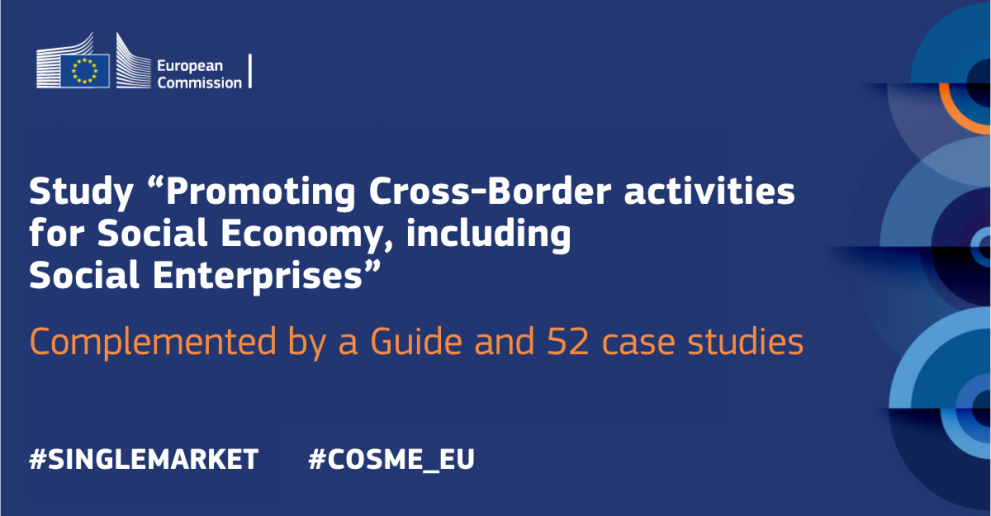
The European Commission recently published the study “Promoting Cross-Border activities for Social Economy, including Social Enterprises”. The study is complemented with a Guide (available also in French and German) to support social economy entities to undertake cross-border activities and with 52 concrete cases of social economy entities operating across borders.
Although various studies have been conducted in the last years on the topic of SMEs’ internationalisation and its effects on the economy, rarely these studies have zoomed in on social economy actors and the internationalisation of social economy entities. In fact, the global nature of social entrepreneurs has only recently attracted growing interest among practitioners and scholars.
Therefore, the study aimed at analysing, assessing and diffusing successful transnational initiatives and activities of social economy organisations as well as corresponding European and national policies with a view to promoting successful approaches that could help social economy to enter the Internal Market.
To achieve this objective, the study carried out:
(i) a desk research and literature review,
(ii) various interviews with social economy stakeholders’ and an online survey,
(iii) overran assessment of 50 social economy cases involved in transnational activities from 14 EU Member States (Austria, Belgium, Cyprus, Denmark, Finland, France, Germany, Greece, Italy, the Netherlands, Portugal, Romania, Slovenia and Spain) and 3 non-EU COSME countries: Turkey, Serbia and Albania, and
(iv) an overview of national, European and regional policies, initiatives and intermediaries’ actions that foster cross-border activities of social economy entities.
The report identified multiple barriers to cross-border activities of social economy entities on the several analytical dimensions: legal, financial, and fiscal as well as linked with business-related, mindset and cultural challenges. The study developed several pathways on how social economy entities operate across borders, each identifying different goals and approaches.
The report underlines that relevance of international operations for the economy of SMEs is not limited to growth accounting indicators, but it involves other advantages such as introducing social innovations, new governance models, or more social and sustainable practices, for example sources by foreign expertise. Consequently, besides the visibility of social economy itself, these social economy specific drivers and experiences in terms of internationalisation, should gain importance in regular support services.
You can browse the executive summary of the study (also in French and German) and find out more on EU initiatives supporting social economy.
EISMEA implements social economy projects under the former COSME programme and currently in the SME pillar of the Single Market programme (SMP).
The study has been produced by consortium led by QPLAN under the contract EASME/COSME/2018/032.
Details
- Publication date
- 31 October 2023
- Author
- European Innovation Council and SMEs Executive Agency
